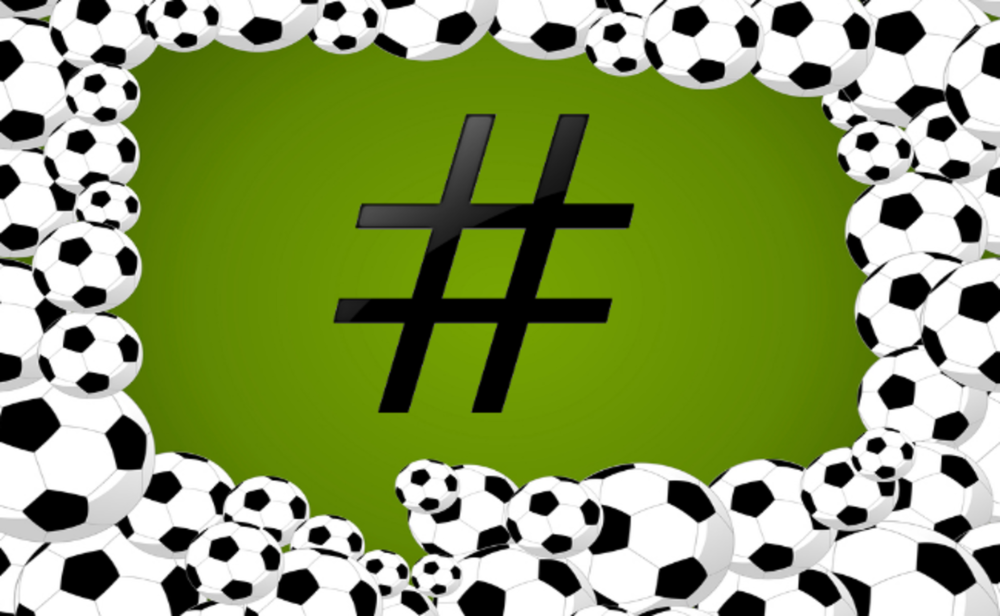People and brands use hashtags for very different reasons. At least, that’s been the case historically. While people use hashtags for a variety of purposes—to give shout-outs, to be funny, to be sarcastic, to take part in a trend—companies generally try to use them for branding. And let’s be honest, branded hashtags are usually either pretty lame or a downright disaster. (JPMorgan knows what I’m talking about.)
That doesn’t mean brands have to completely avoid branded hashtags, but they do have to consider how—and if—people will use them.
The 2014 World Cup has been an interesting arena for hashtag use. Not only are brands becoming more comfortable jumping onto non-branded hashtags, the branded hashtags they did create were fairly cool and actively used.
“Up until now, brands were focused on ownership, almost looking at it from a legal perspective—hashtags are open to anyone and social media managers want to be able to easily track against the value of the conversion to the brand,” says Craig Elimeliah, SVP and director of creative technology at RAPP. “But I see more brands including non-branded hashtags in their communications and using hashtags that have the attributes they want to be associated with.”
There have been quite a few fairly good examples of non-branded brand hashtags at the Cup this year, including #allin (Adidas), #RiseAsOne (Budweiser), and #gamebeforethegame (Beats). Part of the reason these hashtags worked—see below for stats—is because they tap into something visceral that a hashtag like #OfficalSponsorAdidasLovesFutbol just wouldn’t. Or, to take a real example, #CopaCocaCola, which just didn’t really catch on.
“It’s emotional and it’s the kind of thing that inspires people,” says Elimeliah, speaking specifically about #gamebeforethegame. “Beats is willing to adopt the culture and the excitement of the World Cup and let the brand take a backseat to all of the wonderful things about Brazil and the athletes.”
Social intelligence company NetBase broke down the numbers for us, and the message is clear: Branded hashtags simply don’t generate the same share of voice as hashtags that leave the brand name out.
Although there is a Wild West element to non-branded hashtags. There’s no one to say what’s definitive:
Too many hashtags. #USMNT #WorldCup #WorldCup2014 #USAvsPOR #USAvsPortugal
— Steve Seiferheld (@steveseiferheld) June 22, 2014
Organic Hashtags
| # |
Mentions |
Potential Impressions |
Positive |
Negative |
| #Brazil2014 |
653,806 | 4,519,297,714 | 15,172 | 2,331 |
| #ned | 921,130 | 3,155,824,558 | 38,117 | 16,808 |
| #eng | 1,525,464 | 5,634,654,285 | 39,925 | 33,042 |
| #usa | 3,940,254 | 7,954,635,303 | 267,693 | 63,106 |
| #esp | 995,808 | 2,935,810,365 | 38,461 | 21,727 |
| #usmnt | 1,156,165 | 4,598,802,867 | 77,665 | 11,956 |
| #ger | 974,728 | 2,888,295,960 | 33,385 | 8,204 |
| #worldcup | 9,304,360 | 45,892,425,747 | 306,370 | 75,063 |
| #joinin | 458,529 | 1,749,027,884 | 2,378 | 153 |
| #worldcup2014 | 4,840,202 | 13,700,654,614 | 142,895 | 44,237 |
Branded Hashtags VS. Non-Branded Hashtags
| # and Brand |
Mentions |
Potential Impressions |
Positive |
Negative |
| #gamebeforethegame (Beats) |
20,738 |
250,678,560 |
304 |
32 |
| #riskeverything (Nike) |
250,038 |
1,770,627,065 |
1,684 |
395 |
| #riseasone (Budweiser) |
19,982 |
42,596,336 |
688 |
8 |
| #CopaCocaCola (Coke) |
961 |
161,464,840 |
0 |
0 |
| #McdOneGoal (McDonald’s) |
6,061 |
259,171,960 |
32 |
0 |
| #allin (Adidas) |
398,475 | 2,444,919,989 |
5,529 |
409 |
| #PowerToYourMouth (J&J) |
693 |
1,019,461 |
23 |
40 |








